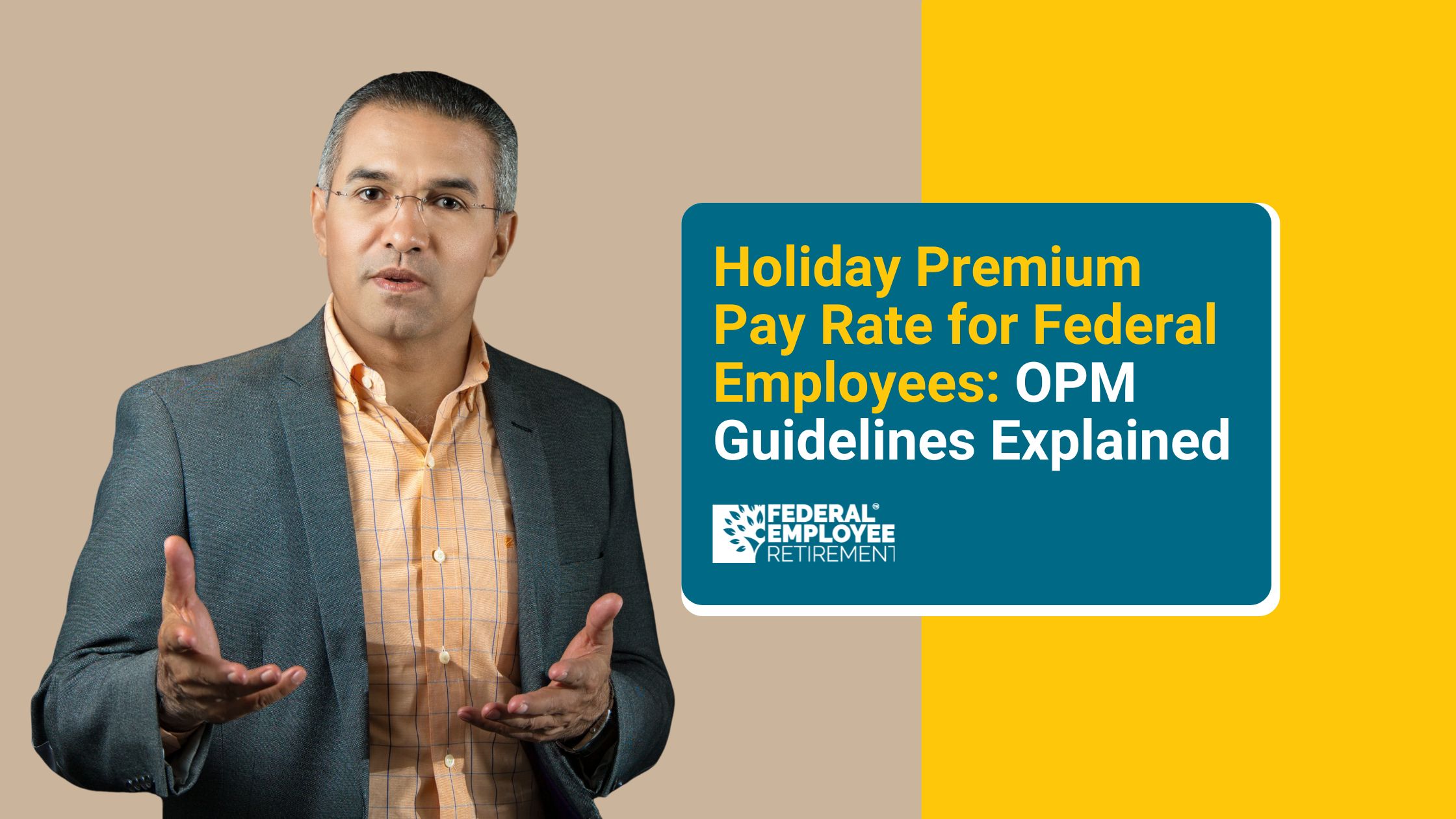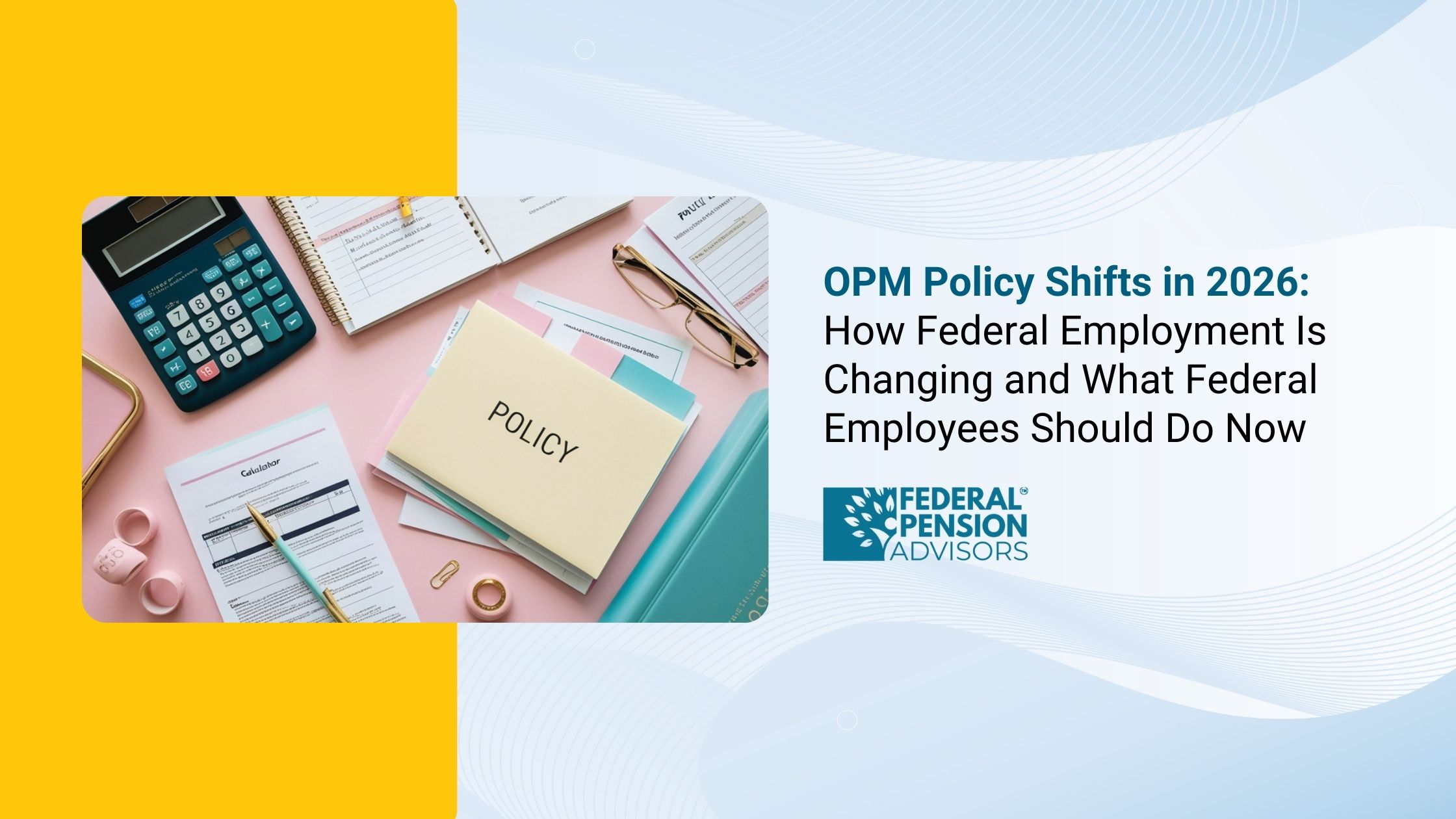You’re not alone; 4,359 federal employees booked their free review.

Holiday Premium Pay Rate for Federal Employees: OPM Guidelines Explained
Federal employees who work on a designated holiday receive holiday premium pay, which is typically equal to their regular rate of pay, in addition to their regular pay for the holiday. This premium pay is often at a rate of 1.5 times the employee's regular hourly rate for each hour worked. In other words, if you work on a holiday, your earnings for those hours could effectively be double time.
This guide breaks down the OPM (Office of Personnel Management) guidelines so federal employees understand exactly what they’re entitled to, how pay is calculated, and the special rules that apply.
1. What is Holiday Premium Pay?
Holiday premium pay is an additional form of compensation paid to federal employees who work on an official federal holiday.
According to OPM.gov, for each hour worked on a holiday:
- You receive your regular hourly pay plus an equal amount in premium pay.
- This effectively equals double your regular hourly rate for those hours.
2. Designated Holidays
Federal employees are entitled to paid time off for these official holidays:
- New Year's Day
- Martin Luther King, Jr.'s Birthday
- Washington's Birthday
- Memorial Day
- Juneteenth National Independence Day
- Independence Day
- Labor Day
- Columbus Day
- Veterans Day
- Thanksgiving Day
- Christmas Day
Holiday Premium Pay
If you are required to work on a holiday, you are entitled to holiday premium pay, generally 1.5 times your regular hourly rate for every hour worked during your scheduled shift on that day.
- "In Lieu Of" Holidays
If a holiday falls on a Saturday, the preceding Friday is usually treated as the holiday for pay and leave purposes.
If it falls on a Sunday, the following Monday is treated as the holiday.
- Rate of Pay
The holiday premium pay is calculated based on your rate of basic pay, which includes your base salary plus any applicable locality payments or special rate supplements.
- Full-Time Employees on Flexible or Compressed Schedules
Flexible schedule: Receive 8 hours of holiday credit.
Compressed schedule: Receive credit for the actual number of hours they would normally work on that day.
3. Eligibility
Most federal employees covered under Title 5, U.S. Code, are eligible. However, there are exceptions:
- Employees receive annual premium pay for standby duty.
- Firefighters are covered under special pay provisions.
- Intermittent employees (those without a regular schedule) are not entitled to paid holiday leave or holiday premium pay.
Need Help Understanding How Holiday Pay Affects Your Retirement?
Holiday premium pay and other special forms of federal compensation can impact not just your paycheck, but also your retirement benefits, pension calculations, and future financial security.
At Federal Pension Advisors, we specialize in helping federal employees make sense of complex rules around pay, leave, and retirement. Our team ensures you:
Understand how premium pay, overtime, and leave policies affect your FERS or CSRS retirement.
Maximize your lifetime pension income by making informed decisions today.
Get a personalized retirement analysis tailored to your service history and pay structure.
4. How is it calculated?
Holiday premium pay applies only to:
- Regularly scheduled work within your tour of duty.
- First 8 hours of the holiday shift.
If your hourly rate is $25 and you work 6 hours on a holiday:
- Regular pay: $25 × 8 = $200 (holiday pay for the full day, assuming full-time status)
- Holiday premium: $25 × 6 = $150 (for hours worked)
- Total pay: $350 for the day.
Note: Hours worked beyond the first 8 hours may be subject to overtime rules instead of holiday premium pay.
5. Special Cases and Considerations
- In Lieu of Holidays: Granted if the holiday falls on a non-workday.
- Flexible & Compressed Schedules: Special rules apply to how holiday hours are credited.
- Part-Time Employees: Eligible for holiday premium pay only for hours worked during their basic work requirement on the holiday (up to 8 hours).
- Travel Time: Travel during holiday hours does not usually qualify for holiday premium pay unless you are performing work while traveling.
- Pay Status Requirement: You must be in a pay or approved leave status on your scheduled workdays before and after the holiday to receive regular holiday pay.
- Minimum Pay: If you report for work on a holiday, you receive at least 2 hours of holiday premium pay, even if sent home early.
6. Misconceptions
A. “Holiday Pay” and “Holiday Premium Pay” Are the Same Thing
Not true.
- Holiday pay: Your regular pay for the day when you’re off because it’s a designated holiday.
- Holiday premium pay: Extra pay for actual hours worked on a holiday, in addition to holiday pay. In short, holiday pay compensates you for not working; holiday premium pay rewards you for working on the holiday itself.
B. All Weekend Work Qualifies for Holiday Premium Pay
Not necessarily.
Weekend work only qualifies if the weekend day is an official holiday or your agency has declared an “in lieu of” holiday for that date. Working on a regular Saturday or Sunday without holiday status will not trigger holiday premium pay overtime rules may apply instead.
C. You Get Premium Pay for the Whole Day, Even If You Only Work a Few Hours
Partly true but with limits.
Holiday premium pay applies only to the actual hours worked (up to 8 hours in your regular tour). However, federal rules guarantee a minimum of two hours of premium pay if you report for duty, even if you work less than that.
D. Travel Time Always Qualifies for Holiday Premium Pay
Incorrect.
Travel is only eligible if you are performing work during travel. Sitting on a plane, driving, or commuting to your worksite generally does not count unless work duties are actively being performed at the same time.
E. Everyone in Federal Service Automatically Gets Holiday Premium Pay
No.
Certain employees like those on intermittent schedules or those already receiving annual standby pay are not eligible. Eligibility depends on your employment category and whether you’re covered under Title 5 rules.
F. Premium Pay Is the Same Across All Agencies
Not always.
OPM sets the baseline rules, but individual agencies may have more generous policies or specific conditions. Always check your agency’s HR guidelines for any additional benefits or restrictions.
Final Thoughts
The holiday premium pay rate ensures federal employees are fairly compensated for working on designated holidays. Know the rules, check your eligibility, and understand how it’s calculated so you can make the most of this benefit when duty calls on a holiday.
FAQs
1. What is the holiday premium pay rate for federal employees?
The holiday premium pay rate is additional compensation equal to your basic hourly rate for each hour worked on a designated holiday, in addition to your regular holiday pay. This means you’re effectively earning double time for those hours.
2. How is the holiday premium pay rate calculated?
It’s based on your rate of basic pay, which includes your base salary plus any applicable locality pay or special rate supplements. You receive your normal pay for the day plus an equal amount for each hour worked, up to 8 hours during your regular tour of duty.
3. Do part-time employees receive holiday premium pay?
Yes, but only for the hours they are scheduled to work on the holiday, and not exceeding 8 hours. Hours worked outside of their scheduled tour may qualify for overtime instead.
4. What happens if a holiday falls on my day off?
You may be granted an “in lieu of” holiday, typically observed on the nearest workday Friday if the holiday falls on Saturday, or Monday if it falls on Sunday.
5. Is travel time on a holiday eligible for holiday premium pay?
Generally, no. Travel time is not considered work unless you are performing official duties during travel. In such cases, those hours may qualify for premium pay.


Get Updated
Subscribe to our weekly updates for the latest on retirement planning, federal benefits, exclusive webinars, and more!
Download Federal Retirement: Step-by-step Checklist
This comprehensive guide will help you understand your federal benefits, optimize your savings, and plan for a comfortable future.



.png)








